As the news of a settlement between the government of India and various factions of Bodo groups started to trickle in, there was much curiosity in Darjeeling hills – home to another demand for the separate state — Gorkhaland. Even though parallels can be drawn between the two, the demand for a separate state of Gorkhaland supersedes that of Bodoland by decades, and the unique geographical positioning of Darjeeling hills, Terai and Dooars, makes it one of the most cosmopolitan and at the same time one of the most vulnerable regions in India.
Hence, all eyes are now fixed on how the Union government moves forward with finding a permanent political solution to the long-pending demand for a separate state Gorkhaland – comprising of Darjeeling hills, Terai and Dooars. Many sceptics thought are concerned, will they make any move at all.
From what I have seen so far, NDA II government is in no mood to miss out on the opportunities provided by the historic mandate they received, and the responsibilities that come with it.
Civilisational and legacy issues
A year ago, no one would have believed if you told them the government was planning to do away with Article 370 and Article 35A. Article 370 underpinned Article 35A of the Indian Constitution, which empowered the Jammu and Kashmir state’s legislature to define “permanent residents” of the state and provide special rights and privileges to those permanent residents.
This law though seemingly protective of the people from Jammu & Kashmir was by very nature highly discriminatory and exploitative. This law permitted unequal rights for the citizens of the state – men had more rights over women, Kashmiris of Gorkha and Balmiki (SC) origin were discriminated against and treated as second-class citizens.
Taking the bull by its proverbial horn, the Union government did away with the Presidential declaration which had permitted Article 35A to become a law. The division of Jammu & Kashmir State into two separate administrative units – Union Territories of Ladakh and J&K, opens up a wide range of possibilities. Most important of all being the reunion of Pakistan Occupied Kashmir region of Gilgit-Baltistan with our nation.
Another important decision taken by the government was the passing of Muslim Women (Protection of Rights on Marriage) Bill 2019 which makes ‘triple talaq’ illegal. While the NDA government held that talaq-e-biddat or instantaneous talaq, as a practice discriminates against women, and thus needs to be criminalised, the Opposition argued that it impinged on the religious freedom of the Muslim community bestowed in Article 25 and 26 of the Indian Constitution. Despite the opposition, the government went ahead and the bill was passed by Parliament as a law on July 30, 2019, to make instant ‘triple talaq’ a criminal offence.
Focusing on financial reforms, the government announced the merger of 10 state-owned banks to form four large banks. The move was aimed at providing relief to banks from rising NPAs and better banking facilities to consumers.
Peaceful resolution of Bodoland demand and Bru refugee case, issues that had remained unaddressed for generations, shows the commitment of the government to resolve all civilisational and legacy issues that have plagued our nation.
Among those legacy issues this government has tackled are the updating of National Register of Citizens in Assam and the granting of citizenship rights to persecuted minority refugees from Pakistan, Bangladesh and Afghanistan.
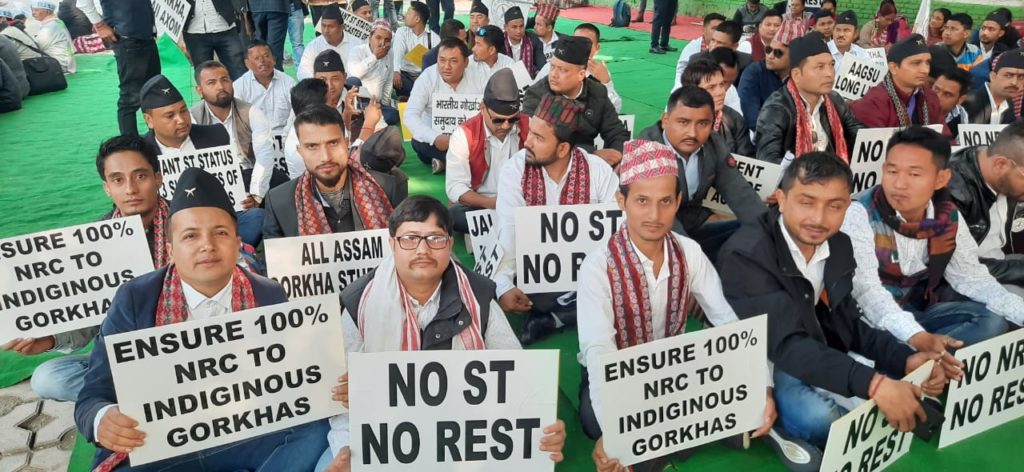
NRC and CAA – blues and greys
When the Supreme Court of India instructed the Union government to update the National Register of Citizens for the state of Assam under its monitoring in 2013, not many knew what would be its consequences. The final updated NRC for Assam published on August 31, 2019, contains over 3.1 crore names out of its population of 33 million or 3.3 crores, leaving out 19 lakh applicants. It is alleged that the majority among them are Hindu refugees/immigrants from Bangladesh, and also substantial number Gorkhas.
The day NRC list in Assam was published, Bharatiya Gorkha Parisangh (BGP) – a quasi-political organisation – claimed: “over one lakh Gorkhas have been left out of NRC roll”. Despite no official substantiation of the figures, even by Bharatiya Gorkha Parisangh themselves till date, this number has caught popular fancy. “One lakh Gorkhas have been left out,” has been repeated so often by BGP, TMC, and Binay-Anit faction that by now everyone takes it to be gospel, though I have my doubts.
NRC process as implemented in Assam under the supervision of Supreme Court was imperfect, and there is no doubt that a large number of genuine Indian citizens have been left out of the NRC, but over the course of time, I am certain all kinks will be resolved.
CAA and the politics of fear
Following the passage of Citizenship (Amendment) Act (CAA), 2019, Assam was the first state where protests began. A majority of the Assamese citizens feared that 1.9 lakh whose names have been left out of the NRC will be settled in Assam itself. Gradually this fear spread across Northeast and the government had to clarify they won’t be settled in any parts of Northeast.
In Darjeeling region, this alleged figure of Gorkhas being left out from NRC in Assam has been used as the prime tool for fear-mongering among the Gorkha populace and used as a political agenda by all those who are opposed to BJP. On one hand, TMC-backed Development Board members are protesting against “racist CAA law which discriminates against Muslims”, on the other, TMC-backed Binay-Anit faction are protesting against the fear that “NRC rejects from Assam will be settled in Darjeeling hills, Terai and Dooars”.
Their fears are well-founded though, as West Bengal chief minister Mamata Banerjee has time and again said “anyone who is displaced due to NRC will be settled in Bengal,” and our region is the most likely place she may settle additional refugees in. As a remedy, they have demanded Inner Line Permit (ILP) to be implemented in our region.
Gorkha National Liberation Front (GNLF), one of the BJP allies, has demanded that our region be included under the Sixth Schedule of our Constitution so that “the region is protected from a fresh wave of immigrants”.
Amidst this, the government announced the signing of a new peace treaty with the Bodo-groups that were on the frontline of armed struggle for a separate state of Bodoland on January 27, 2020. Once the terms of the agreement became public, someone whose opinion I highly regard tweeted, “What a joke on Bodo people by BJP! The Bodos are seeking their own state and not an administrative arrangement within Assam. The govt is clearly & openly cheating the Bodos of Assam.” [sic]
GTA vs Bodoland Territorial Council
The GTA agreement signed in 2011 mentions the “setting up of an autonomous body empowered with administrative, financial and executive powers in regard to various subjects to be transferred to the said body for the development of the region and restoration of peace and normalcy there.” The Bodoland agreement reads, “The process of BTC to have more legislative, executive and administrative and financial powers in respect of additional subjects as enumerated at Annex – I within 90 days.” It includes issues relating to electrification and energy, the welfare of minority communities, trade and commerce, MSME, education, etc, in addition to the existing lists of legislative autonomy already granted to the BTAD under Sixth Schedule of our constitution.
My reading and understanding of the Bodo Agreement show that the Bodos are getting Gorkhaland Territorial Administration (GTA) like to set up, with legislative powers added in. This could be a game-changer, though.
As well-meaning as GTA agreement was, the West Bengal government under Mamata Banerjee absolutely refused to allow it to function to its full potential. There was no administrative or functional autonomy, and almost all the departments that were to be transferred to GTA were never transferred in spirit. Every dotting the I’s and crossing the t’s had to be approved by Nabanna, and while the elected representatives of GTA were left with lots of responsibilities and public expectations, the actual powers rested with the office of the district magistrate. Also, GTA never had any legislative power. So, it never went on to fulfil the aspirations of the people from our region.
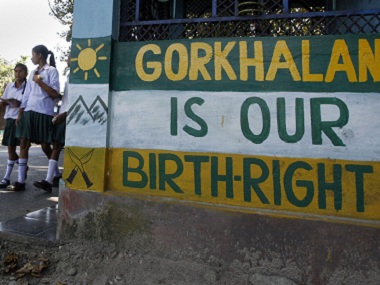
Gorkhaland – the possibilities
Given how NDA 2.0 has been proactive in tackling issues of national importance one by one, it is a foregone conclusion that they will take up the issues concerning finding a permanent political solution to the long-pending demands of the people from Darjeeling hills, Terai and Dooars in the coming days. All indications hint at a possible settlement post-2021 Bengal elections.
However, the Union government shouldn’t seek to wrap up the Gorkhaland issue as they did with Bodoland issue. The Bodos do not suffer from an identity crisis, and their main bone of contention has been effective protection and recognition of Bodo people as a separate indigenous entity in Assam. Whereas the Gorkhas suffer from a grave crisis of identity, whereby we have always been viewed with suspicion by others. Whenever we have asked for our rights, the West Bengal government has blatantly labelled us as “foreigners, terrorists and outsiders”.
The people here expect NDA II government to take decisive action on Gorkhaland statehood issue. Instead of more power to semi-autonomous bodies like DGHC or GTA, the government should seek to either form Gorkhaland state or the Union Territory of Gorkhaland and nothing less.
Personally, given the sensitive border zone that our place is, I’d prefer a Union Territory for our region. Already enough blood has been shed over the Gorkhaland issue, and NDA II government is well poised to take a historic decision that will ensure long-term safety and security of the vulnerable ‘chicken’s neck’ region of our nation.
As a friend of mine was reminding me the other day: “A stitch in time, can save nine”.
This article was originally published here.

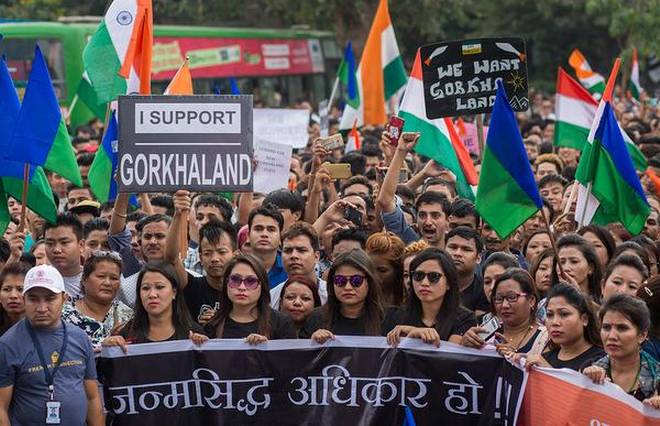
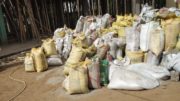
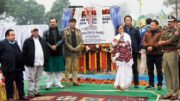
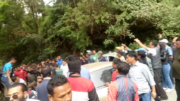

A common man’s dreamed understanding of our Area is well depicted by Upendra Sir. An UT with or without legislation should immediately be formed to protect it’s people 360°.